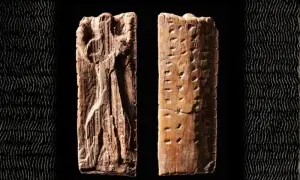Cultural shocks Pakistanis may encounter in Türkiye
5 min read“She cried ‘fascist!’ “ says Sheena٭ “I never understood why she used that word, however, the feeling that I had after that incident is still fresh on my mind.”
Sheena who was a Pakistani student at a Turkish university recounts a chilling encounter that unfolded while she and her friends embarked on a bus journey towards Bahçeşehir.
Soon after they settled into their seats and started conversing with each other in Urdu, they realized that every pair of eyes on the bus was fixated upon them.
She recalls an abrupt disturbance erupting from a man who was poised to leave the bus.
His voice echoed and he started relentlessly shouting slang directed towards them in Turkish, showing displeasure at seeing foreigners in the bus.
Everyone was nodding in appreciation of the guy. Looking at the puzzled faces of Pakistani students, a lady and her son stood up in their defense and told off the guy. They told him to mind his business. It was then that the lady called the man a “fascist”.
Pakistani students found support on the bus, but the encounter left the group of friends deeply unsettled and confused as to what they had done wrong. It prompted them to cut short the trip and go back.
One key takeaway for them was that Türkiye is not an Islamic country in the traditional sense, rather it is a secular nation with a majority Muslim population, which is highly influenced by the neighboring European countries.
Pakistani students were shocked because they did not expect someone would object to their appearance and the use of their native language on a public bus. This was the first cultural shock they experienced in the country.
Fear of Foreingers
With Türkiye’s rich Ottoman history, Turkish people are known for their hospitality and welcoming nature, however, the increase in the number of illegal immigrants and refugees entering the country and a rising crime rate has sparked xenophobic tendencies.
Turkish people do not want any more foreigners in their country. This was reflected in the current election campaign, where a major point of the campaign was the reduction in the number of foreigners in Türkiye.

Not only that, but with the current political developments, getting visit visas to Turkey is becoming increasingly difficult, especially for Pakistanis.
If you are planning to visit Türkiye either as a tourist or to land in the country as a student or worker, do expect that some people may not be as welcoming as many other Turkish brethren are.
To avoid encountering difficulties, it is advisable to familiarize yourself with Turkish traditions and acquire some basic knowledge of the Turkish language promptly. This will empower you to navigate various situations effectively as they arise.
Additionally, demonstrating respect for Turkish norms and culture is crucial, and endeavoring not to act impulsively in such circumstances is equally important. By doing so, you can foster better interactions and understanding, leading to positive experiences during your time in Turkey.
Language barrier
Being an ex-colonized nation, most Pakistanis know how to speak English, which is what a lot of people expect Turkish people to do. However, over 70% of the Turkish population only speaks Turkish, which is why navigating in Turkey without learning basic Turkish can be more difficult than you expect.
Not knowing Turkish highly restricts opportunities for international students and other foreigners living in Türkiye.
The language barrier causes some people to think that they faced discrimination at the hands of locals, which may not be true.

For people looking to settle down in Türkiye, the level of bureaucracy there is unprecedented and governmental procedures are lengthy and tedious. Furthermore, as most officials speak Turkish, completing your paperwork may become an uphill task.
The process to attain a residence permit is lengthy and often extremely difficult for foreigners with poor vocabulary of the Turkish language. With the current policy changes, the practice of denying residence permits to foreigners, which was earlier adopted in only 10 districts of Istanbul, has now spread to 39 districts.
To learn Turkish, enrolling in free online courses available on websites such as Alison is highly recommended. Moreover, numerous short video clips are available on YouTube by several different creators such as TurkishClass101.com and Learn Turkish with Turkishaholic.
These courses are specifically designed for beginners and can accelerate your Turkish language learning process. Additionally, watching Turkish TV dramas can significantly improve your comprehension and speaking skills in the language.
By combining these various resources, you can enhance your overall Turkish language proficiency.
It still tastes good in Türkiye
If you are planning to visit Türkiye, bear in mind that Turkish cuisine is inherently healthy and highly seasonal, but low on spice as opposed to what most Pakistani perceive it to be.
However, it has a closer affinity to Pakistani cuisine and dishes like Turkish Kebab, Kofte (yes they use the same name for meatballs as we do), Pilaf, and Döner kebab may not sound alien to Pakistani taste buds.

Not only that, if you decide to cook on your own, rest assured that it won’t pose any challenges. Some of the spices and ingredients are readily available at almost every local grocery store, making it convenient to access all the necessary items.
Furthermore, the option to order groceries online adds to the ease and accessibility, ensuring you can acquire everything you need from the comfort of your home.
٭ The name has been changed to protect privacy.
For the latest news, follow us on Twitter @Aaj_Urdu. We are also on Facebook, Instagram and YouTube.


























Comments are closed on this story.